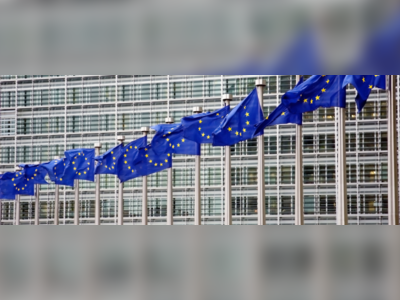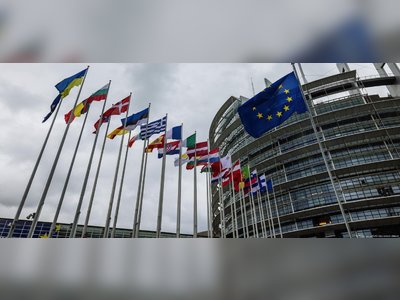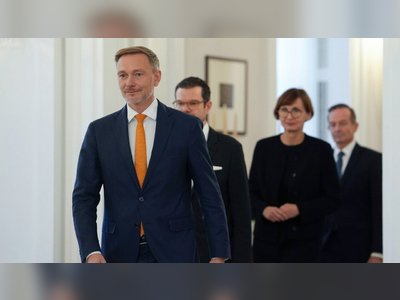
Australia Considers Reclaiming Darwin Port Lease from Chinese Firm
The Australian government moves to reassess the lease agreement with Landbridge amid rising concerns over national security and foreign investment.
In a decisive political maneuver, the Australian government is contemplating the re-acquisition of lease rights to Darwin Port from the Chinese company Landbridge.
Landbridge secured a 99-year lease on the strategic northern port in 2015, a transaction that has faced scrutiny but is now under renewed examination due to changing geopolitical dynamics.
Nations, including Australia, India, and Japan, are increasingly concerned about Chinese influence over vital infrastructure and trade routes in the region.
Prime Minister Anthony Albanese has indicated that his administration is formulating plans to reclaim the port on the grounds of national interest, stating, 'We are acting in the interests of sovereignty and security.' This statement suggests a potential reversal of one of Australia's more contentious foreign investment decisions in recent history.
Following the announcement, China's ambassador to Australia criticized the move, asserting that penalizing a private enterprise that has operated legally could set a concerning precedent.
'We hope Australia will honor its commitments and treat Chinese enterprises fairly,' the ambassador remarked.
The implications of reclaiming Darwin Port extend beyond this specific asset, reflecting broader strategic concerns regarding foreign control of infrastructure.
The current climate of global commerce emphasizes the significance of maritime assets, leading Australia and its partners in the Indo-Pacific to seek safeguards against foreign, particularly Chinese, dominance in critical logistics hubs.
The controversy surrounding Darwin Port embodies a wider regional shift where economic pragmatism is being reevaluated in the context of security imperatives.
As the Indo-Pacific becomes a focal point for major power competition, states are increasingly asserting authority over strategic assets that were previously viewed as purely commercial ventures.
Historically, Australia has relied on nations like the United States and the United Kingdom to define its defense doctrine and maritime strategy.
However, this reliance is evolving, as Australia is strategically positioned at the intersection of the Indian and Pacific Oceans, commanding vital sea lanes that facilitate global trade.
Australia's unique geography had previously been underutilized, with hesitation stemming from complex regional diplomatic dynamics.
Countries such as New Zealand and ASEAN nations have begun regarding Canberra as a more favorable partner for security collaboration, positioning it as an alternative middle power in lieu of closer ties with either Washington or Beijing.
In the context of a shifting regional security landscape, Australia is reassessing its strategic posture.
This recalibration is not merely a reaction to the ambitions of surrounding powers; it is part of a more extensive initiative to secure economic sovereignty and defense infrastructure.
While Australia maintains strong connections with traditional Western allies, there is a rising inclination towards asserting greater autonomy.
Prime Minister Albanese's current policies underscore this trend, framing the potential reacquisition of Darwin Port within a national security narrative that conveys a message of domestic security rather than direct geopolitical confrontation.
Simultaneously, Australia is strengthening its military cooperation with the United States, demonstrated by the development of northern bases that will host American bombers and fighter jets.
Although these moves are officially independent, they reveal an overarching duality in Canberra's strategy: fortifying alliances while protecting critical national infrastructure from foreign influence.
The trajectory of Australian foreign policy reflects a nuanced approach, balancing assertiveness with a commitment to maintaining diplomatic relations.
This emerging strategy may provide a framework for a more self-reliant Australia as it navigates the complexities of a contested regional environment.
Landbridge secured a 99-year lease on the strategic northern port in 2015, a transaction that has faced scrutiny but is now under renewed examination due to changing geopolitical dynamics.
Nations, including Australia, India, and Japan, are increasingly concerned about Chinese influence over vital infrastructure and trade routes in the region.
Prime Minister Anthony Albanese has indicated that his administration is formulating plans to reclaim the port on the grounds of national interest, stating, 'We are acting in the interests of sovereignty and security.' This statement suggests a potential reversal of one of Australia's more contentious foreign investment decisions in recent history.
Following the announcement, China's ambassador to Australia criticized the move, asserting that penalizing a private enterprise that has operated legally could set a concerning precedent.
'We hope Australia will honor its commitments and treat Chinese enterprises fairly,' the ambassador remarked.
The implications of reclaiming Darwin Port extend beyond this specific asset, reflecting broader strategic concerns regarding foreign control of infrastructure.
The current climate of global commerce emphasizes the significance of maritime assets, leading Australia and its partners in the Indo-Pacific to seek safeguards against foreign, particularly Chinese, dominance in critical logistics hubs.
The controversy surrounding Darwin Port embodies a wider regional shift where economic pragmatism is being reevaluated in the context of security imperatives.
As the Indo-Pacific becomes a focal point for major power competition, states are increasingly asserting authority over strategic assets that were previously viewed as purely commercial ventures.
Historically, Australia has relied on nations like the United States and the United Kingdom to define its defense doctrine and maritime strategy.
However, this reliance is evolving, as Australia is strategically positioned at the intersection of the Indian and Pacific Oceans, commanding vital sea lanes that facilitate global trade.
Australia's unique geography had previously been underutilized, with hesitation stemming from complex regional diplomatic dynamics.
Countries such as New Zealand and ASEAN nations have begun regarding Canberra as a more favorable partner for security collaboration, positioning it as an alternative middle power in lieu of closer ties with either Washington or Beijing.
In the context of a shifting regional security landscape, Australia is reassessing its strategic posture.
This recalibration is not merely a reaction to the ambitions of surrounding powers; it is part of a more extensive initiative to secure economic sovereignty and defense infrastructure.
While Australia maintains strong connections with traditional Western allies, there is a rising inclination towards asserting greater autonomy.
Prime Minister Albanese's current policies underscore this trend, framing the potential reacquisition of Darwin Port within a national security narrative that conveys a message of domestic security rather than direct geopolitical confrontation.
Simultaneously, Australia is strengthening its military cooperation with the United States, demonstrated by the development of northern bases that will host American bombers and fighter jets.
Although these moves are officially independent, they reveal an overarching duality in Canberra's strategy: fortifying alliances while protecting critical national infrastructure from foreign influence.
The trajectory of Australian foreign policy reflects a nuanced approach, balancing assertiveness with a commitment to maintaining diplomatic relations.
This emerging strategy may provide a framework for a more self-reliant Australia as it navigates the complexities of a contested regional environment.
AI Disclaimer: An advanced artificial intelligence (AI) system generated the content of this page on its own. This innovative technology conducts extensive research from a variety of reliable sources, performs rigorous fact-checking and verification, cleans up and balances biased or manipulated content, and presents a minimal factual summary that is just enough yet essential for you to function as an informed and educated citizen. Please keep in mind, however, that this system is an evolving technology, and as a result, the article may contain accidental inaccuracies or errors. We urge you to help us improve our site by reporting any inaccuracies you find using the "Contact Us" link at the bottom of this page. Your helpful feedback helps us improve our system and deliver more precise content. When you find an article of interest here, please look for the full and extensive coverage of this topic in traditional news sources, as they are written by professional journalists that we try to support, not replace. We appreciate your understanding and assistance.











